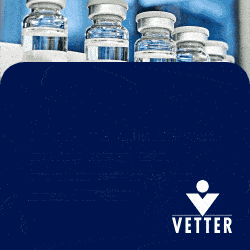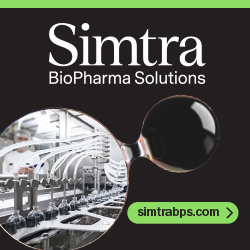Enterome Announces Research Collaboration With Dana-Farber Cancer Institute
Enterome recently announced it has entered into a research and development collaboration with Dana-Farber Cancer Institute (Boston, MA) to evaluate and develop gut microbiome-derived antigens as potential cancer immunotherapies.
Enterome is developing an innovative approach to cancer immunotherapy, based on the concept of “molecular mimicry,” whereby microbiome-derived bacterial antigens show molecular similarity with Tumor-Associated Antigens (TAAs) and Tumor-Specific Neoantigens (TSNAs). Based on this similarity, bacterial antigens (onco-mimics) mimic key tumor antigens that are highly expressed by tumors to trigger tumor-specific cytotoxic T cell immune responses.
Enterome has developed a discovery platform to identify such onco-mimics from the human gut microbiome and has advanced EO2401 as its first clinical candidate. EO2401 comprises several microbiome-derived antigens that mimic antigens highly expressed by brain tumors and is targeting first clinical trials in 2019 as a potential new immunotherapy for recurrent glioblastoma multiforme (GBM) for which no curative treatments exist.
The collaboration brings together Enterome’s ability to identify potential TAAs and TSNAs as well as to generate bacterial onco-mimics for the selected TAAs and TSNAs with the complementary translational expertise from the research groups at Dana-Farber Cancer Institute led by Dr. David Reardon at the Center for Neuro-Oncology and Dr. Paul Kirschmeier at the Belfer Center for Applied Cancer Science. Drs. Reardon’s and Kirschner’s groups are focused on driving innovative research programs and clinical trials to improve cure rates in patients with brain and spinal cancers, with a particular focus on immunotherapies.
Through this collaboration Enterome will have access to knowledge, scientific expertise and preclinical models at Dana-Farber Cancer Institute that are intended to support the in vivo validation and further development of Enterome’s immunotherapy approach for the treatment of cancer.
“We are delighted to have signed this collaboration with one of the most esteemed cancer research institutions in the US,” said Pierre Belichard, CEO of Enterome. “Drs. Reardon and Kirschmeier are accomplished and renowned clinician-scientists in their respective fields, and their groups have pioneered novel approaches to cancer therapy, particularly in the brain. We believe this collaboration will be highly productive in further validating our onco-mimic immunotherapy approach and enable us to develop our pipeline of new candidates for multiple cancer indications.”
Enterome is a clinical-stage biopharmaceutical company leveraging its unique knowledge of the key functional and molecular interactions between the gut microbiome and the human body to develop targeted therapeutics.
Enterome is advancing a pipeline of small molecules, short peptides and protein therapeutic candidates for the treatment of cancer, including immuno-oncology, and auto-immune disorders: these include EB8018, a first-in-class, non-systemic, orally administered small molecule that is specifically designed to remain gut-restricted and to block bacteria expressing the bacterial virulence factor, FimH. EB8018 is in a Phase 1b clinical trial for Crohn’s disease (partnered with Takeda). Enterome is also developing EO2401, an innovative microbiome-derived cancer immunotherapy (onco-mimic), which is expected to enter clinical trial in glioblastoma multiforme (GBM) patients in 2019.
The company’s strategic drug discovery is driven by its proprietary platform enabling the identification and therapeutic application of the bioactive molecules that are expressed, secreted and regulated by the gut microbiome. Enterome’s partners include Takeda, Bristol-Myers Squibb (BMS) and Janssen Biotech. The company is backed by leading venture capital investors (Seventure Partners, Lundbeckfonden Ventures, Health for Life Capital, Omnes Capital and Principia) and strategic investors (BMS, Nestlé Health Science, Shire and INRA Transfert).
Additional information about Enterome is available at: www.enterome.com. Follow us on Twitter: @EnteromeSA.
Total Page Views: 1438

















